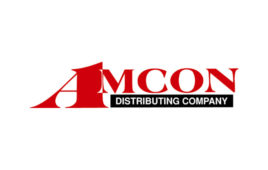By John Lofstock, Editor
When ExxonMobil Corp. announced last June that it was getting out of direct-store operations, dealers of its venerable retail brands found themselves at a crossroads. They could either be on the receiving end of the deed to their own properties or be forced to work with a new master and an onerous set of operational and financial challenges. Dealers in New Jersey are bracing for the latter.
“No one can argue that ExxonMobil is making a business decision that is in their best interest. We understand that,” said Roger Verma, president of Sohum Enterprises in Somerset, N.J., which operates 11 convenience stores and gas stations in New Jersey and Pennsylvania. “What we are saying is give us a fair opportunity to acquire our own property.”
New Jersey, unlike many other states, doe
s not have a right of first refusal law, which means it’s strictly up to the oil company if it wants to make the stores available to individual dealers. The United Dealers of New Jersey Inc. (UDNJ) was formed in response to these concerns and has been meeting weekly for about two months to refine a strategy to protect its interests.
UDNJ currently represents more than 115 Exxon locations in New Jersey, just about half of all the Exxon stations in the state. “We are united and we will not waiver,” the group said in a statement to Convenience Store Decisions. “We strongly believe that all Exxon dealers deserve to have the ‘right of first refusal and the right to be involved in the process.”
ExxonMobil has begun the initial bidding process for the sale of the majority of its company-operated and dealer sites from Virginia through New Hampshire. This includes approximately 230 dealer operated stations in New Jersey.
Beth Snyder, U.S. field public affairs advisor for ExxonMobil, told CSD the oil company did quite a bit of due diligence prior to moving in this direction, and it understands that dealers are eager to get answers, but it stopped short of accepting an offer to negotiate directly with them.
“We made the decision to convert our direct-served dealer markets to the distributor class of trade after careful analysis and study,” Snyder said. “We do understand that our retailers will have questions and we will continue to have on-going discussions including local management meetings. We will also communicate with them when specific market conversion plans are finalized.”
Operating Costs Could Soar
At the heart of the issue for UDNJ, and all dealers across the country in a similar situation, is the long-term viability of their business. ExxonMobil’s seeming desire to sell stores in blocks to large distributors likely means the dealers would be facing an increase in operating costs at a time when they can least afford it.
The group’s members emphasized they are not anti-Exxon. Most of the members are long-time franchise owners who value their relationship with the company and want it to continue, but seek a voice in the sales process.
“Over the years ExxonMobil has built its lucrative empire on the backs of thousands of service station owners like us, making money off of our operations through the years from gasoline, rent and other sources of revenue like credit-card processing through third-party processors GE Capital until 2007 and now Citibank,” the group said. “After earning billions of dollars last year alone, ExxonMobil has decided to sell our stations to the highest bidding distributor, and they refuse to talk to us about our options.”
UDNJ said its goal right now remains to “open a meaningful dialogue with ExxonMobil executives about the impact of this transition” on local New Jersey franchisees and the communities they serve. “The neighborhood Exxon stations are typically family-run business,” the group said. “Any unilateral sale of these stations to distributors without franchisee involvement or input leaves the franchisees’ financial health uncertain and deprives them of the value of their assets.”
Committed to a Strong Future
“We are well-aware of the fact that there are no companies with the economic resources of ExxonMobil,” said Ed Rapke, president of RE & EM Enterprises, a three-store dealer in Livingston, N.J. “Any distributors to which these stations would be sold as a package will have to recoup their investment. This will have a predictable and negative result.”
UDNJ fears the franchisee expenses will be significantly increased to the point of financial ruin. “Higher rents, higher maintenance fees and higher fuel costs will ultimately lead to lower margins, lower sales volumes and higher gas prices,” the group said. “Without adequate protection, many franchisees will be pushed out of business.”
Read more on UDNJ and CSD’s exclusive interview with the group in the February issue of CSD.




